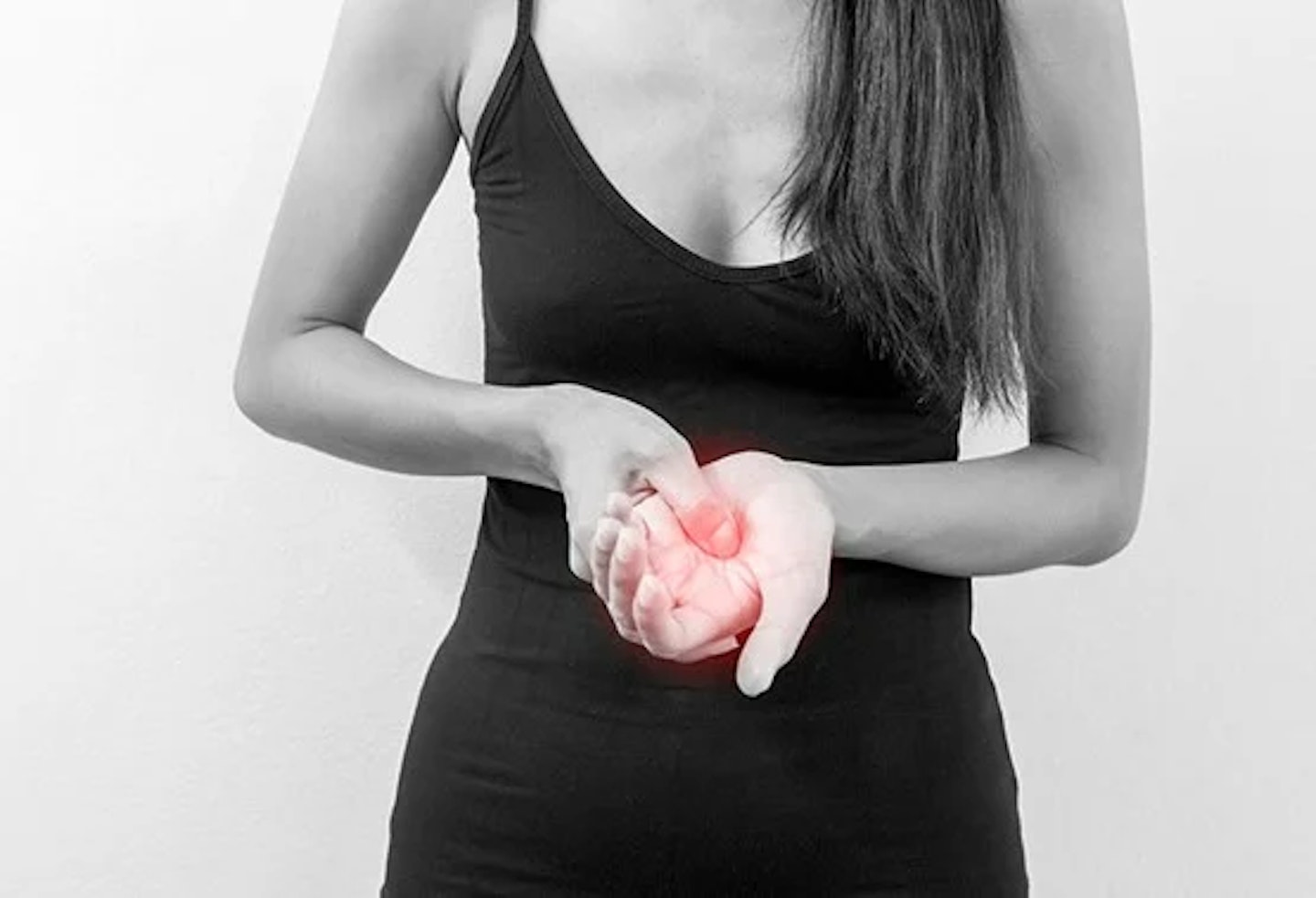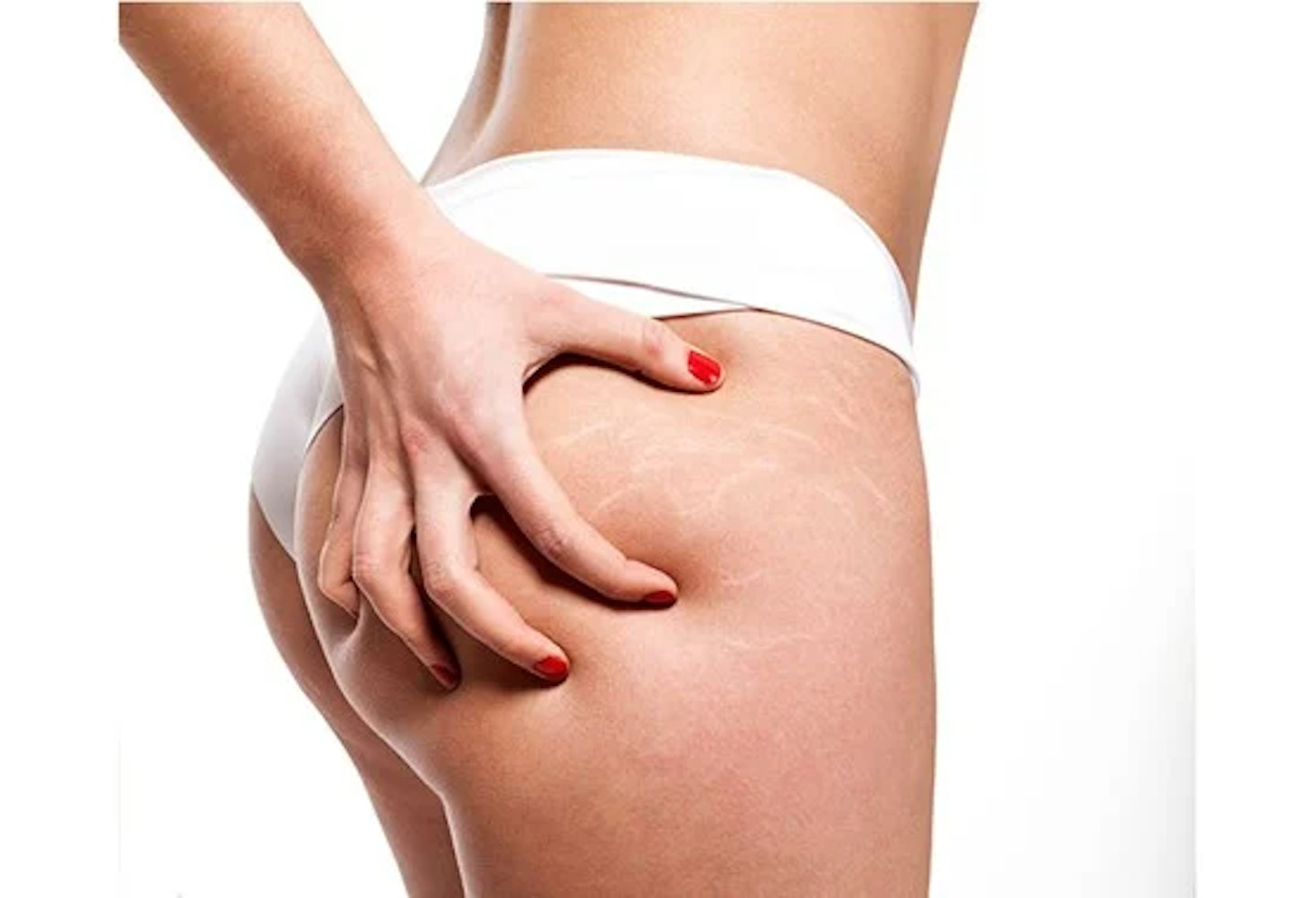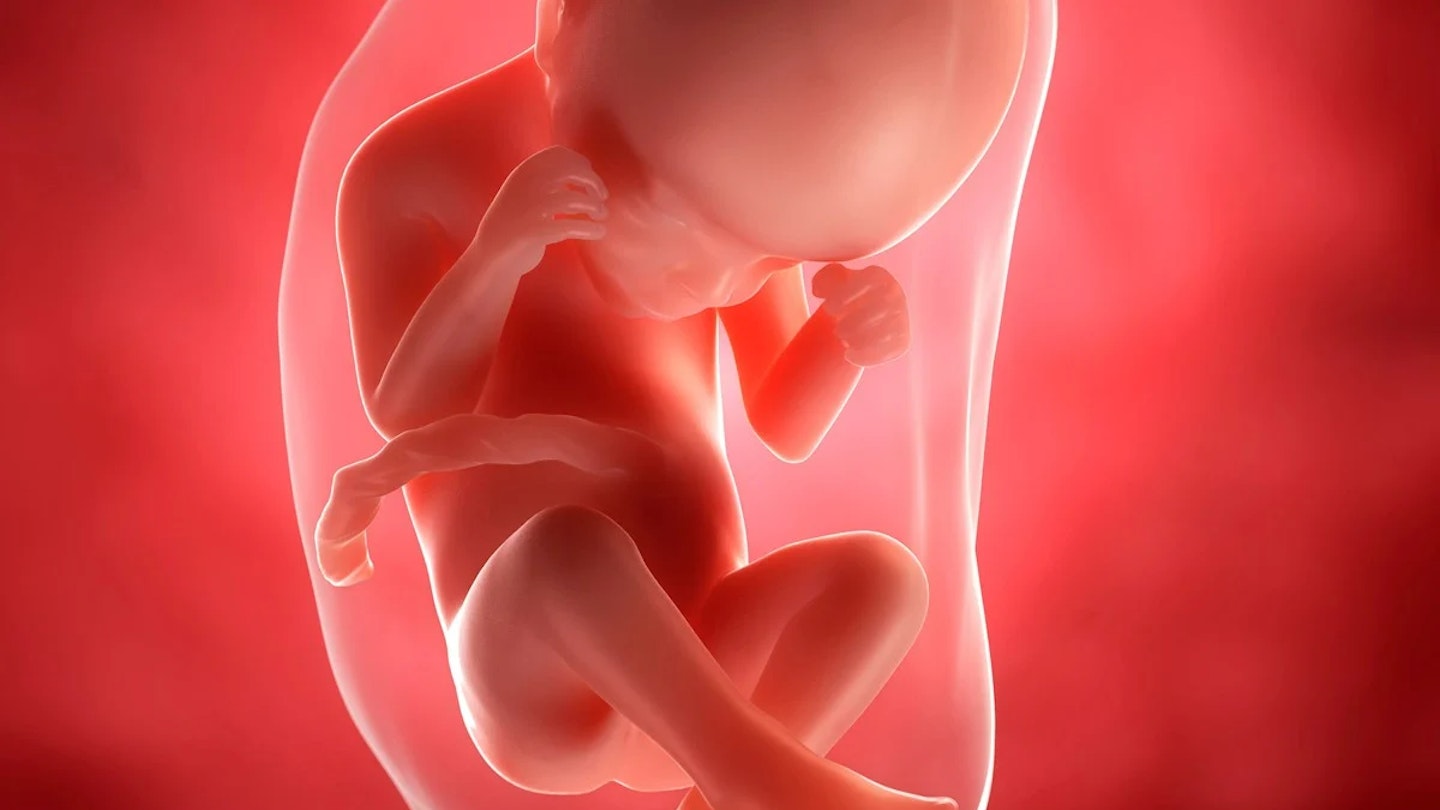At twenty-four weeks pregnant, your baby’s little face is almost fully formed, your stomach is growing and there are plenty of other bodily changes taking place for both mum and baby.
Find out about any symptoms you might have and everything else that is happening to you and your baby at 24 weeks pregnant.
How big is my baby at 24 weeks?
Your baby is growing fast - she's gained around four ounces in a week, putting her at around one and a third pounds. Almost a foot long now, your baby is about the same length as an ear of corn and will continue to put on about three to three and a half ounces a week until the birth.

What’s my baby doing at 24 weeks?
There are plenty of changes taking place for your baby this week. Her brain is growing, her taste buds are developing, and her body is filling out.
Your baby’s lungs are maturing every day and are beginning to produce a substance called surfactant, which helps to keep tiny air sacs in the lungs called alveoli open. She’ll even start practising breathing in the womb, moving her chest up and down and exhaling amniotic fluid. You'll probably be feeling her move now too.
While your baby’s skin is still thin and translucent, that will soon change: she’ll soon start to plump up, with much of the weight gained this week due to growing organs, muscles, bones, and fat. The skin will become less see-through as fat deposits are made.
Even though your baby is still tiny and developing, she has now reached a stage of potential viability, meaning she may be able to survive outside the womb if she’s born early. She would, of course, have to stay in a special neonatal ventilator, but after 24 weeks, her arrival would be registered as an official birth.
6 common symptoms to look out for at 24 weeks pregnant:
 1 of 7
1 of 71) Carpal tunnel syndrome
Noticing that your wrists and fingers are feeling numb? It’s carpal tunnel syndrome, another confusing pregnancy symptom. The swelling you’ve noticed during pregnancy is responsible: it causes fluids to accumulate in your lower body during the day, and redistributes them around the rest of your body once you’re lying down, which puts pressure on the nerves that run through your wrists, and thus can cause pain, tingling, a sense of numbness or an ache in your hands, fingers and wrists. These symptoms will disappear once your baby’s born, but for now, try to shake your hands and wrists and to avoid sleeping on them at night.
 2 of 7
2 of 72) Red, itchy palms
Known as palmar erythema, your palms and the bottom of your feet may turn itchy and red. This is due to an increase of oestrogen and increased blood volume. Stay away from irritants like harsh soaps, and seek relief by applying cold water or ice to your palms or feet.
 3 of 7
3 of 73) Haemorrhoids or piles
You also may be experiencing the joy of haemorrhoids, or piles, which are essentially varicose veins in your bottom. Like the veins in your legs, the ones in your bottom can stretch so that blood starts to collect in them, causing pain and swelling. The reason they’re so common in pregnancy is down to those pesky hormones, again – they can cause sluggish digestion and constipation, meaning you strain when you go to the loo, putting extra pressure on the veins around your bottom.
 4 of 7
4 of 74) Blurred vision
Seeing double? Blame those pregnancy hormones again! They can decrease tear production, which increases fluid build-up in the eye, which can obscure your vision. Ask your GP for eye drops if your eyes feel dry, and don’t panic: these symptoms will go away once your baby is born.
 5 of 7
5 of 75) Backache
The backache continues. It may even be getting worse as time passes. As your baby gets bigger, so does your uterus and this puts pressure against your spine adding to the strain and potentially making it more curved. Not to mention the extra baby weight!
 6 of 7
6 of 76) Linea negra
That pesky dark line is likely to develop until labour. Moisturiser can't hurt and it should fade not long after birth.
 7 of 7
7 of 77) Stretch marks
Sadly these are likely to continue to occur right up until you give birth! Keep persevering with stretch mark/bump creams and moisturiser.
What is my body doing at 24 weeks pregnant?
As ever, your body’s changing week by week: by week 24, your uterus will be about the size of a football. It’s also time to take a glucose screening test - also known as a glucose challenge test or GCT - to check for gestational diabetes a high blood sugar condition that can affect pregnant women.
As we mentioned, you may be experiencing haemorrhoids or piles. You may notice itchy bumps around your anus and bright, red blood in the toilet bowl and on the loo paper. As unpleasant as they are, piles can be treated easily with haemorrhoid creams to numb the pain and itching, so book an appointment with your GP if you need advice.
What to do this week
-
Book a meeting with your manager: It’s time to tell your employer that you’re pregnant if they don't know already. This is known as the notification week, or the 15th week prior to the week your baby is due. You’ll probably have told your line manager before this point, especially if you’ve been taking time off for antenatal appointments, but in case you haven’t, now’s the time to mention it!
Your week 24 FAQ's answered:
How big should my bump be at 24 weeks pregnant?
At 24 weeks pregnant your pregnancy will definitely be starting to show and you can expect to have gained around 14 to 16 pounds.
How many months are 24 weeks pregnant?
Learning how to do the pregnancy math can be complicated, but at 24 weeks pregnant, you're around five months and one week into your pregnancy.
